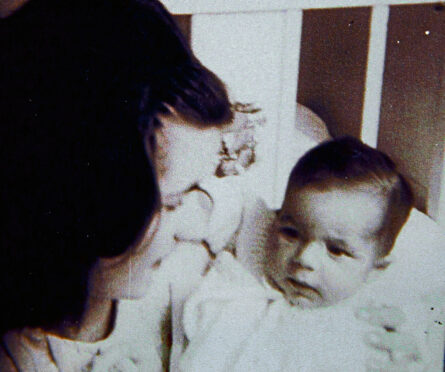
Medical watchdogs have admitted no records exist to trace women given a cancer-causing drug that places future generations at risk.
A synthetic hormone, developed to mimic oestrogen, was given to young mothers to dry up their breast milk after their babies were taken for adoption.
But Diethylstilbestrol – known as DES and Stilbestrol, Stilboestrol and Desplex in the UK – has been linked to a number of breast and vaginal cancers, gynaecological abnormalities and infertility in the children and grandchildren of women given the pills.
And the Royal College of Obstetricians and Gynaecologists recommends those exposed to the drug have annual colposcopic examinations in specialist centres.
But now medical authorities admit there is no way of tracking down women given the drug, or their children.
The Medicines Healthcare and Regulatory Agency said: “In the mid-70s it would not have been possible to track down women who were treated with DES in pregnancy in the 30 years up to that time because no central information system of the drugs prescribed for individuals existed.”
Now forced adoption campaigners are calling for a public awareness campaign to alert the women involved, as well as their children and grandchildren.
Marion McMillan, 73, from Paisley, Renfrewshire, was one of 60,000 forced adoption victims in Scotland, losing her baby son simply because she was not married.
She said: “The drug Stilbestrol was handed out like sweeties in mother and baby homes.
“There was no attempt to put things in our medical records, and it doesn’t surprise me no files exist.
“But now we’re aware DES causes cancers, reproductive organ defects, infertility and gender issues for our children and grandchildren, a public awareness campaign must happen so everyone exposed can get regular medical check-ups.”
Film-maker Caitlin McCarthy, 50, whose new movie Wonderdrug exposes the dangers and cover-ups, said: “I’m affected by DES because it had been given to my mother during a pregnancy. My doctor recognised the abnormalities in my cervix was as a result.
“The effects of DES are as horrific as Thalidomide, but there’s been silence so very few victims will even realise they were exposed.
“An international awareness campaign is needed as many countries are unaware. I know many children and grandchildren who’ve been affected.”
Australia’s leading forced adoption campaigner, Lily Arthur, said: “Mothers and their children are living with a ticking timebomb.
What did you give us? Fears over drug given to young Scots mothers forced into adoption
“The high rate of breast cancer in women today shows it’s not paranoia for us to wonder that we, and future generations, could die from a drug we were exposed to.
“The high instance, effects and use of this drug has yet to be fully explained and exposed. We need to know what to look for in the way of symptoms. This should happen before any apology.”
Politicians from every party have supported calls for a forced adoption apology in Scotland.
Tory MSP Miles Briggs said: “These women and their families need to be informed about the effects of DES.”
Scottish LibDem leadership candidate Alex Cole-Hamilton said: “There is a moral imperative for government to look into this and help these victims urgently.”
The Scottish Government said: “We are seeking guidance from MHRA on what steps would be appropriate to support people adversely affected by this drug.”

Enjoy the convenience of having The Sunday Post delivered as a digital ePaper straight to your smartphone, tablet or computer.
Subscribe for only £5.49 a month and enjoy all the benefits of the printed paper as a digital replica.
Subscribe